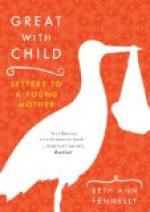The common practice of lecturing the young on the importance of early rising, may have a good effect on a few; but in general, it is believed to produce the contrary result. It is, in short, to sum up the whole matter, the influence of parental example, and the speaking often of the happiness which early rising affords, with perhaps the occasional indulgence of the child in a pleasant morning walk, which, if he retires early enough, are almost certain to produce in him the valuable habit of early rising.
But what is an early hour? Some call it early, when the sun is one hour high; some at sunrise; others, when they hear of an early riser, suppose he must be one who rises at least by daybreak.
Midnight is, of course, as near the middle of the night as any hour; and he who goes to bed four or five hours before midnight, will never complain of those who insist that he is not an early riser who is not up by four or five o’clock. In summer, no adult ought to lie in bed after four o’clock, and no child, except the mere infant, after five.
Much is said by a few writers, especially Macnish, of the danger of rising before the sun has attained a sufficient height above the horizon to chase away the vapors, and remove the dampness. But I must insist upon earlier rising than this, though we should not choose to venture abroad. Invigorated and restored as we are by sleep, I cannot think that the dampness of the morning air is more injurious than the foul air of some of our sleeping rooms.
CHAPTER XVI.
HARDENING THE CONSTITUTION.
Mistakes about hardening children. Their clothing. Much cold enfeebles. The Scotch Highlanders. The two extremes equally fatal—over-tenderness and neglect. An interesting anecdote from Dr. Dewees.
While I have been very particular in enjoining on my readers the importance of thoroughly ventilating their dwellings, I have also insisted upon the necessity of taking children abroad, as much as possible. Not, however, to harden them, so much as to give them a more free access to air and light than they can have at home; and also—when they are old enough—to cultivate the faculties of attention, comparison, &c.
The practice of attempting to harden children by frequent exposure to air much colder than that to which they have been accustomed, without sufficient additional clothing, is open to the same objections which have been brought against cold bathing. Under the management of a judicious medical practitioner, it may do great good to a few constitutions; but its indiscriminate use would injure a thousand infants for one who was benefited.
True it is that if the child is protected against cold, no harm, but on the contrary much good may result, from carrying him abroad into the fresh air, even in very cold weather. But what can be more painful than to see the little sufferers carried along when their limbs are purple, or benumbed with cold? And how idle it is to hope that such exposure hardens or improves the constitution!




